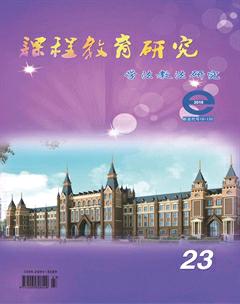Advocating Reflective Teaching for English Teachers’Professional Development
Du+Yong-xiu
【Abstract】English teachers professional development has become a core issue in recent years. Reflective teaching plays a significant role in foreign language teachers professional development and professional growth. This paper firstly reviews the domestic and foreign researches on reflective teaching and teachers professional development, and then illustrates the significance of reflective teaching.
【Key words】reflective teaching; professional development
【中图分类号】G64 【文献标识码】A 【文章编号】2095-3089(2016)23-0012-02
I.Introduction
With the worlds largest number of foreign language learners, Chinas foreign language teaching reform has always been a hot issue of educational reform, the effect of which also becomes a significant and heart-tugging focus. Nevertheless, for a long time, the academic research in foreign language education has mainly been focusing on the theories and techniques of foreign language teaching. As a way of“learning to teach”, reflective thinking supplies a flow of fresh water for the professional development of foreign language teachers.
This paper aims to explore a constructive way for English teachers to promote their professional development.
II. Review of Reflective Teaching and Teachers Professional Development
Reflective teaching is defined as “the teachers thinking about what happens in classroom lessons and thinking about alternative means of achieving goals or aims”(Kathleen M. Bailey, Andy Curtis & David Nunan, 2004). Researches on reflective teaching in China have started and flourished since the 1990s. Barlett (1995) listed eight principles in his Teacher Development Through Reflective Teaching to provide guidance for teachers reflective teaching. Wallace (1991) uses a “reflective model” which shows that teaching practices and reflections is the basis of teachers development, and teachers development is the final result of teachers practices and reflections.
Influenced by the development of foreign language education abroad, Chinese scholars and researchers began to pay close attention to professional development of foreign language teachers. From April 2001, School of Educational Science of Capital Normal University used international theories and experience in teacher education for reference, set up a serious of teacher developing schools in Beijing.
III.Function of Reflective Teaching on Teachers Professional Development
Reflective teaching is seen as a process that can facilitate teaching, learning and understanding, and that plays a central role in teacher professional development.
The function of reflective teaching on professional development can be shown as follows. First, reflective teaching increases the degree of “professionalism”. Teachers who are better informed as to the nature of their teaching are able to evaluate their stage of professional growth and what aspects of their teaching they need to change. Secondly, it can help young teachers achieve a better understanding of their own assumptions about teaching as well as their own teaching practices. Lastly, as young teachers gain experience in a community of professional educators, they feel the need to grow beyond the initial stages of survival in the classroom to reconstructing their own particular theory from their practice.
Without systematically reflective teaching, teacher professional development becomes impossible, and at the same time teacher professional development spurs teachers to do reflective thinking in their teaching.
IV.Conclusion
Efficient foreign language teaching is both a science and a professional pursuit. To achieve self-development and improve professional competence, foreign language teachers must have diversified and open thought, correct and innovative educational beliefs, critical spirit, perseverance and strong affection for students.
Reflective teaching has proved to be an effective way to teacher professional development theoretically and practically, for reflective teaching can make a teacher become a life-long learner and researcher, can make a teacher become more self-aware and self-monitor of his own teaching, and cannot only change and but also integrated a teachers teaching beliefs and practice.
References:
[1]Bailey, K. M., Curtis, A., & Nunan, D. (2001). Pursuing Professional Development: The Self as Source. Boston, MA: Heinle &Heinle.
[2]Bartlett. L (1990). Teacher Development through Reflective Teaching. In J. C. Richards and D. Nuan(eds.). Second Language Teacher Education. New York: Cambridge University Press.
[3]Dewev. J. (1933). How We think. Reprinted in W. B. Kolesnick (ed.). Mental Discipline in Modern Education. Madison: University of Wisconsin Press.
[4]Henson, & Ellet, B. F. (2005). Educational Psychology for Effective Teaching. Beijing: Foreign Language Teaching and Research Press
[5]Wallace, M. J. (1991). Training Foreign Language Teachers: A Reflective Approach. Cambridge: Cambridge University Press.
作者简介:
杜永秀(1990-),女,山东日照人,研究方向:英语课程与教学研究。

